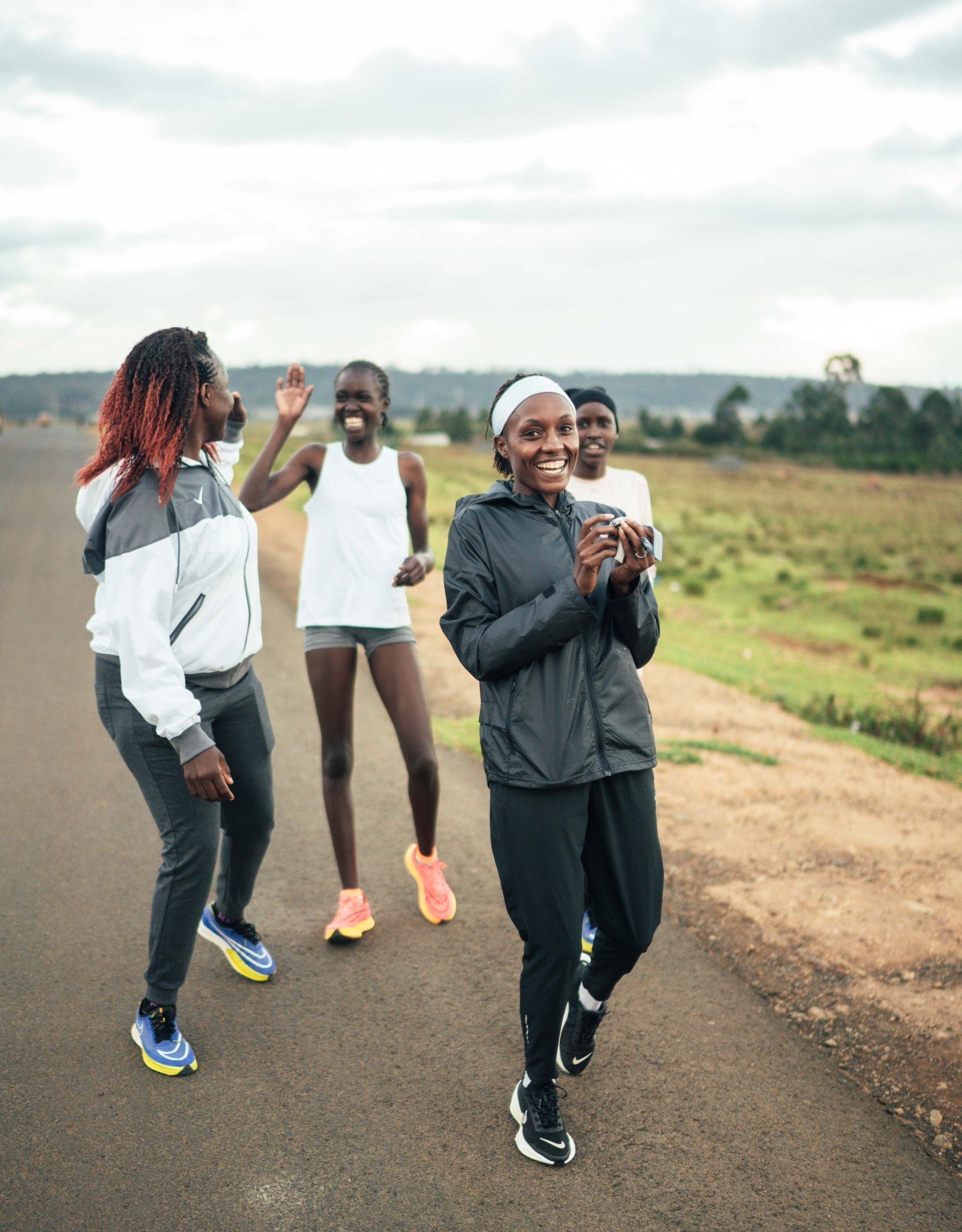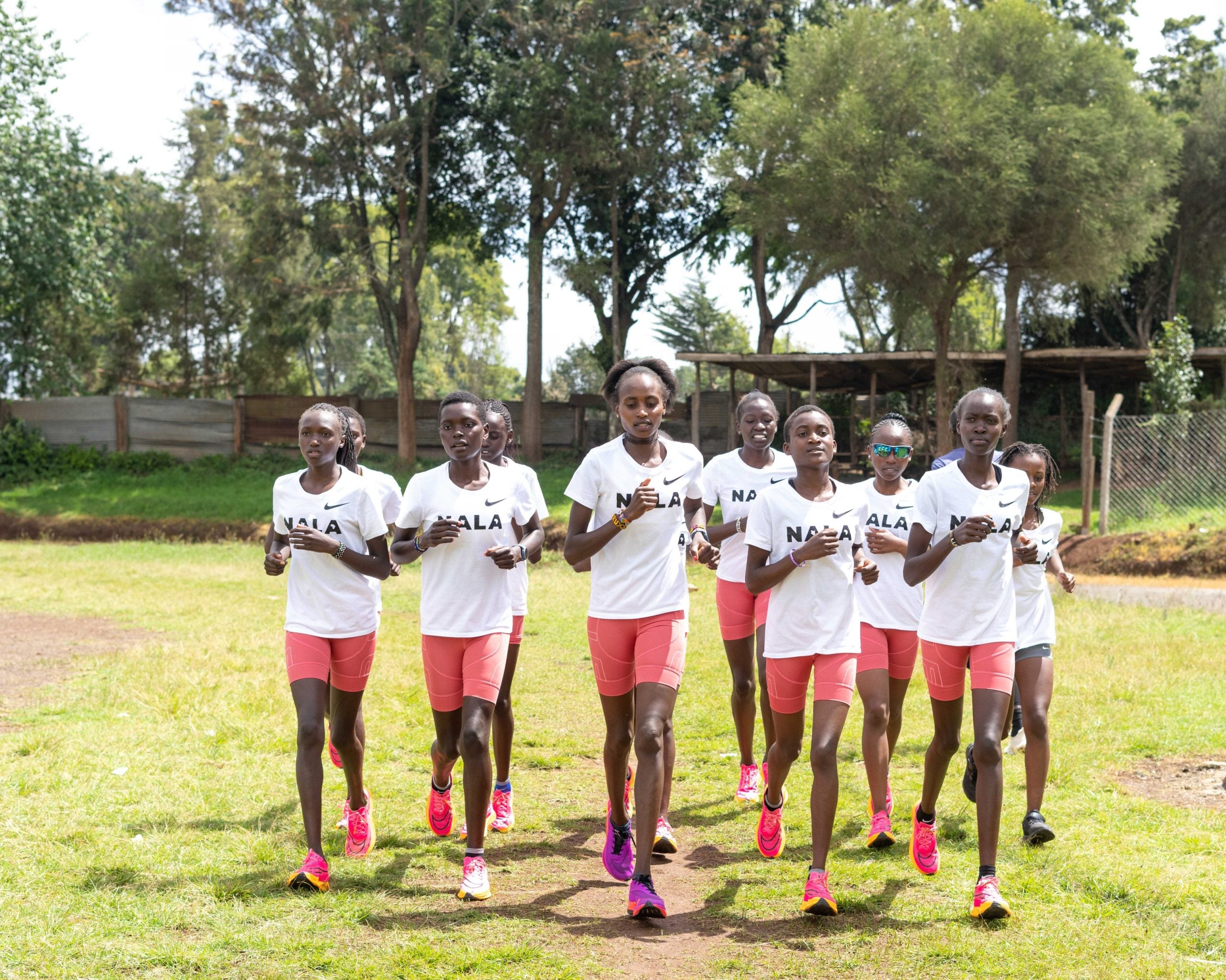
As a child, long-distance runner Mary Ngugi-Cooper had no aspirations of becoming an athlete. Running fast came as natural to her as breathing, and her unofficial training involved “running” errands in her birthplace of Kikuyu, a city in southern Kenya just outside of Nairobi.
“We used to run very far to go to the shop, to go to school, to go to the farm; my mom always sent me because she knew, ‘She’ll be there in five minutes,’” Ngugi-Cooper tells ESSENCE, laughing at the memory. “I used to beat all the boys coming back to school, and they were always like, ‘Are you crazy? Why are you running so fast?’ ‘It’s not a competition.’ ‘Slow down.’ But I wouldn’t slow down.”
Ngugi-Cooper sped up, participating in road running meets, where she first represented her school, her local division, and the district before competing in the nationals. In 2005, a coach spotted her and invited her to a training camp. One year later, her professional career took off, and she soon found herself competing around the globe, running at the World Junior Championships in Beijing and eventually the Boston Marathon, which she’ll run for a fifth time on April 15.
Inspired by her travels, Ngugi-Cooper launched a female empowerment movement called the Women’s Athletic Alliance to support young East African girls pursuing sports.

“I’ve lived in the U.K., I’ve made friends in America, and I’ve seen how different things are there. I’ve seen how girls are treated differently. Girls have a voice, they’re empowered, they’re educated. The culture is different. So I asked, ‘Why can’t our girls in Kenya be the same?’” she says. “I wanted to give back to the community and try to give the girls what I’ve seen abroad because my eyes were opened to see we don’t have to be controlled. We can say no. We can demand equality for ourselves.”
However, the more Ngugi-Cooper began to talk with young Kenyan women about their experiences, the more she realized they needed more than mentorship and encouraging words.
“When I heard the stories of girls being abused by coaches, girls being raped in camps, losing their money because they’ve signed a contract without knowing what they signed, or they have no control over their money because the coaches are taking it or sometimes their husbands, that was when I said we have to do something,” she shares.
The murder of 25-year-old Kenyan long-distance running medalist Agnes Tirop by her husband in October of 2021 was the final spark that lit the match for Ngugi-Cooper. In October 2022, she founded Nala Track Club, a female-only organization based in the town of Nyahururu that’s designed to help young women in Kenya excel in running at the semiprofessional level. Named after the African moniker for a powerful, successful woman, Nala Track Club helps ensure a safe training camp environment for participants and covers housing and education costs for those who need it. It also established a coaches training program for women to develop more of them in the country.
“I’ve never heard of a female coach,” Ngugi-Cooper admits. “I’ve never seen one at the track. I’ve never been timed by one, and I grew up thinking it’s normal, to be honest. It’s a male-dominated sport in Kenya. If you’re a female, you can be a cleaner, you can be a cook or the matron, you can’t take the big jobs, and that is one of the things we try to change. Females can be the coaches; they can be the owners of the camp.”
When Nala first began, Ngugi-Cooper and her husband Chris brought in six girls and completely funded the program from their own pockets. “It was hard for me because I didn’t have any support; I had to use my own money,” she says. “My husband had to help me, and I even had to give out my own clothes. Most of these girls come from very poor backgrounds. They don’t have anything. They’re running barefoot. They don’t even have their own learning clothes or shoes to wear. So I would give them my own shoes and clothes so they could train. I took them back to school with my own money. I was trying to support them the best way I can.”
One year after Nala’s launch, Nike came on board to assist with funding the girls’ basic needs and in-residence scholarships to remove financial barriers along their training and education journey. There are now 17 girls in the track club.
“We have our own camp now. We own the camp. We can pay for their school fees and their medical bills, and if they have any issues, they can go to the hospital. We give them money for their hair. We meet all basic needs at the camp,” says Ngugi-Cooper. “We have a female coach as well who we are developing, and we have a female photographer and a female physio. It’s a whole big group now.”

Ngugi-Cooper’s efforts are part of a much larger movement to end gender-based violence in Kenya. At the end of January, marches were held throughout towns and cities in the East African country to protest the murders of 14 women who had been killed since the start of the year. According to AP News, that number has now reached nearly 60. In a 2023 Demographic and Health Survey, more than 11 million Kenyan women (20% of the population) reported experiencing physical or sexual violence from an intimate partner during their lives. Numerous citizens and organizations, like the Coalition Against Sexual Violence, are calling on the government to act.
“What are you really trying to do to stop it in the first place? That should be the main goal, not just trying to help women who are already in it,” Ngugi-Cooper says.
“It’s a cultural thing. It’s not just athletes. It’s the whole Kenyan society, so it’s going to take more than just the government because if I’m abused and I don’t say it, or if I’m raped and I don’t say it, nobody talks about it, and there’s nothing they can do about it. I think we need to be open and understand this is not normal. This is not okay. We should all try to do something about it.”
As Ngugi-Cooper prepares her mind and body for Monday’s race, she’s more cognizant than ever of her part in securing a better future for Kenyan girls and women.
“I have a bigger responsibility than before because I’m not just running for myself now. I’m running for these girls. They’re looking up to me,” she says. “I want to go out there and win races as well, but even if I don’t, I’ll still be proud of myself because it’s not about just winning races. I’m more than that, and that’s what I want to show my girls. You’re more than that.”